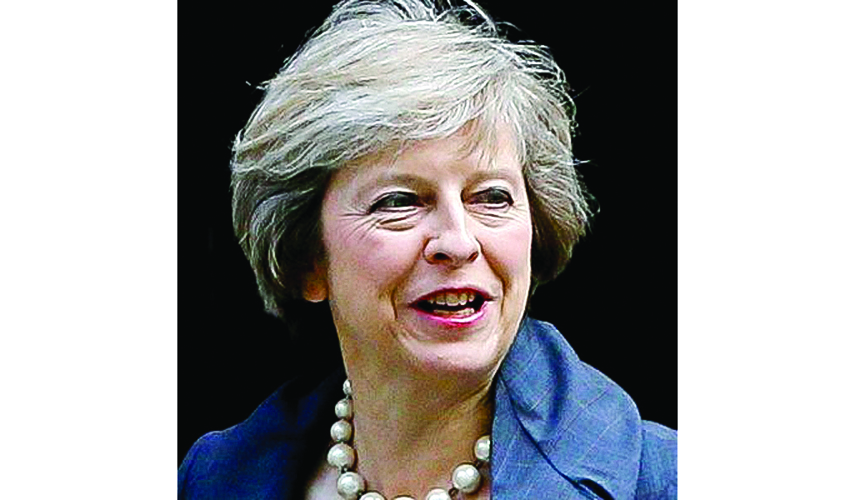The selection of candidates has begun behind autonomous closed doors at CCHQ (Conservative Campaign Headquarters). Although five categories of seats are known, the selection process is mysterious. Many have commented that the whole show is being run by No. 10. The Prime Minister’s Office is directing Gareth Fox, Head of Candidates, who was unprepared for a snap election, as not enough candidates are on the approved list. Candidates for target seats are being resuscitated from the General Election 2015 batch in emergency Parliamentary Assessment Board meetings. Many were deselected for good reasons, but it is expedient for CCHQ to re-select them and favourable for name recognition in constituencies. To the bystander and even some candidates, the process is haphazard, with much of the communication coming via Mark Wallace, the Executive Editor of Conservative Home (Britain’s top Conservative blog), who seems to be trusted by reliable sources who share valuable tips and information with him. Special Advisors seem to be getting pride of place as candidates and in key positions. There are a surprising number of inexperienced candidates and a surprising number of dedicated but disappointed party loyalists, who have not been appointed so far. The David Cameron initiative of increasing Black and Minority Ethnic Conservative representation in Westminster seems to have been abandoned, although Rehman Chishti, MP, did hold a meeting at CCHQ to encourage “the brightest and the best” from diverse backgrounds to stand as Conservative councillors. To date, only two Indian origin candidates have been selected for Labour-held safe seats. Brexiteer Zac Goldsmith was re-selected to his original seat of Richmond (a Remainer majority constituency) by a stunning majority to wrestle the seat from a Liberal Democrat, who was elected after Goldsmith resigned, when Heathrow airport was chosen for the third UK runway.
Since the start of the year, No. 10 has been deserted by Katie Perrior (Director of Communications), Lizzie Loudon (Press Secretary) and Helen Bower (Chief Spokeswoman), leaving the Prime Minister and her so-called formidable joint Chief of Staff, Fiona Hill and colleague Nick Timothy to lead the election campaign. So far, there is no sign of a manifesto, only a lot of speculation about the possibility of raised taxes and if the government will guarantee that pensions will rise by 2.5% per annum, inflation or wages (whichever is the greatest) and if foreign students should be excused from immigration numbers. The UK withdrawal from the European Court of Human Rights has gone wobbly in the last week and is expected to be excluded from the manifesto. There is no complacency in Theresa May moving towards Labour’s centre ground. So far the PM has pledged to cap expensive and unfair energy prices.
The contest is geared to a strong and stable leadership versus a chaotic coalition (Labour/Liberal Democrats/Scottish National Party). The Tories seem to be letting this potential coalition have exhaustive free rein of the media and airwaves before releasing their manifesto. One difference contrary to the 2015 manifesto is that about 5.5 million expats, who were promised lifelong voting rights, are no longer allowed to vote after having lived abroad for more than 15 years. Many older expats voted Remain for healthcare and the right to remain living in the EU reasons.

The Open Britain Group, which began as a cross party lobby group against Brexit, launched a tactical voting campaign intended to unseat any MP who had supported Brexit in the 2016 referendum. Three prominent Conservative MPs have left the group, because it was unacceptable to jeopardise Tory party seats. Consequently, Open Britain now consists only of Labour and Liberal Democrat MPs.
Foreign policy does not usually play a part in election campaigns, but Boris Johnson, Foreign Secretary (whose sister has just joined the Liberal Democrat Party), jumped into the campaign arena by telling the BBC “it would be very difficult for the UK to refuse the US if it asked for support in another military strike on Syria”.
He brought into question whether a vote in Parliament was necessary. What is not clear is if the Prime Minister and indeed the British people want to go to war (regime change) in Syria and enter into a conflict with Russia. The Prime Minister called the situation “hypothetical”.
Presently, it is hoped that UKIP voters will turn to Tory and feared that some die-hard Remainer Tories will turn to the Liberal Democrats. To date, Labour has campaigned on improving healthcare and education, but it is a fact that the National Health Service has always been more successfully administered under a Tory government. Labour has appointed Sir Keir Starmer to counter the Prime Minister’s Brexit ideas, which he claims are reckless; Labour would continue tariff-free trade between the UK and the EU, with no new non-tariff burdens for business, with regulatory
An aggrieved and united EU have fortified their position on Brexit, adding ring fencing on financial services from a future
trade agreement and demanding a right to remain in UK for EU citizens of +5 years. Guy Verhofstadt, the EU’s Brexit chief, even threatened that UK citizens might not have the right to holiday, study and travel in the 27 EU countries unless negotiations went the Brussels’ way.

